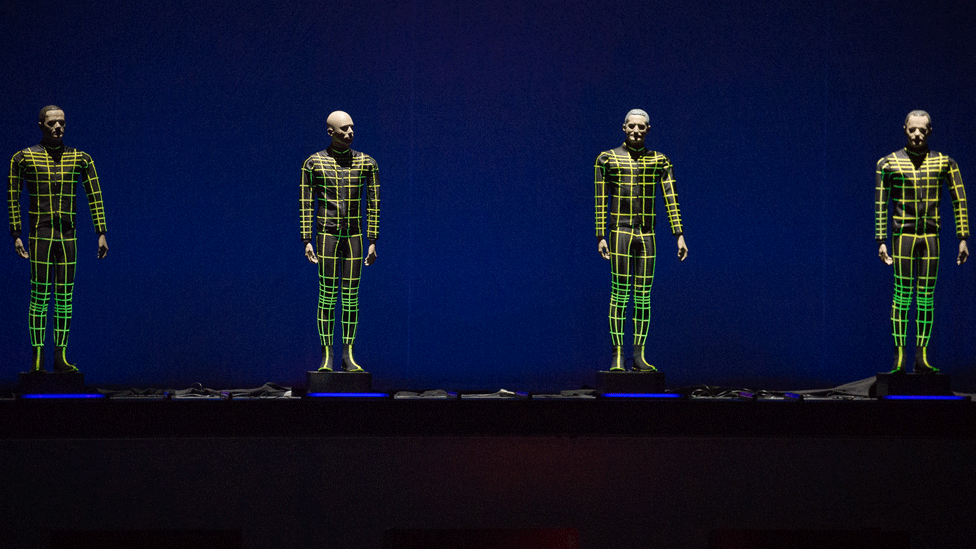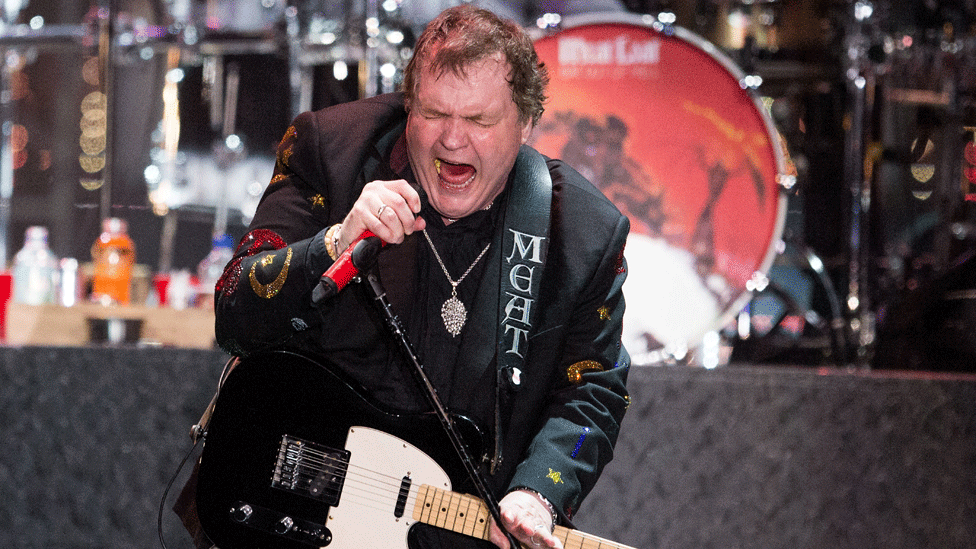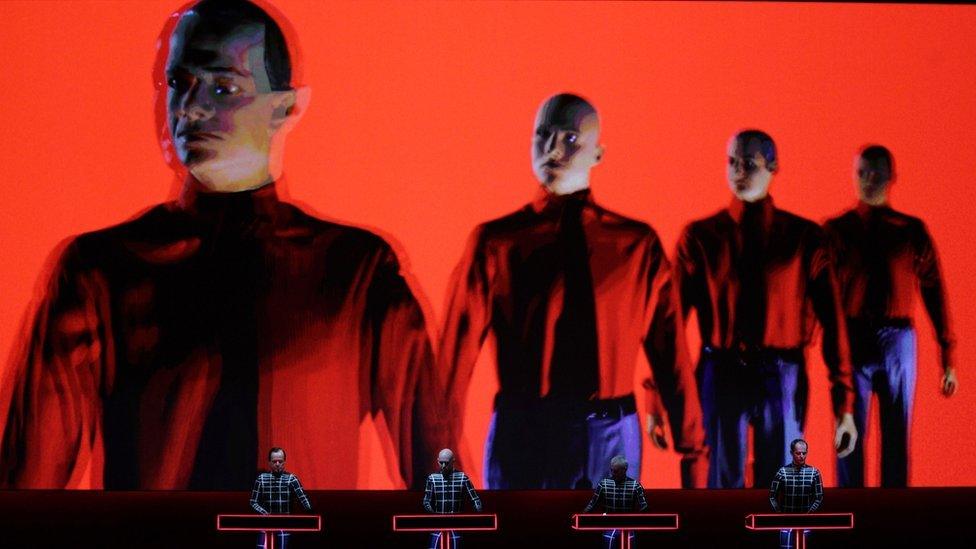Kraftwerk win 20-year sampling case over Metal On Metal
- Published

Kraftwerk are currently touring Europe
German electro-pop pioneers Kraftwerk have won a long-running copyright battle over a two-second clip of their 1977 track Metal On Metal.
The European Court of Justice ruled that musicians cannot "sample" other artists' records without permission.
Kraftwerk brought the action against hip-hop producers Moses Pelham and Martin Haas in 1999 over the Sabrina Setlur song Nur Mir (Only Me).
The ECJ decision, external could have huge implications for the music industry.
Monday's ruling means that any reproduction of a sound sample taken from an existing recording must be authorised by the original producer.
Kraftwerk's Ralf Hütter and Florian Schneider-Esleben are credited as producers of Metal On Metal, a track from their album Trans-Europe Express.

Katy Perry has also fallen foul of copyright law
But the ECJ also ruled that use of a modified sample that was unrecognisable from the original could be used without permission.
The Kraftwerk dispute centres on a short drum sequence looped repeatedly in Setlur's song.
In 2012 Germany's Federal Court of Justice ruled Setlur's song should no longer be promoted, agreeing with Hutter that it amounted to copyright infringement.
But in 2016, the German Constitutional Court - the country's highest court - decided the impact on Kraftwerk did not outweigh "artistic freedom".
The case then reached the ECJ on appeal.
Florian Drücke, chairman of German musician's union BVMI, said the ECJ "has made it clear that a phonogram manufacturer is allowed to allow or prohibit the duplication of his phonogram and under certain conditions very short audio sequences against the use of third parties".
But he added that the court had also created "criteria as to when sampling falls within the scope of art freedom".
"The interpretation of the new criteria of the ECJ will be up for discussion," he went on.

Meatloaf's I Would Do Anything For Love was a global hit in 1993
Meanwhile, according to The Wrap, external, Meatloaf has settled another copyright case involving his hit I Would Do Anything For Love (But I Won't Do That).
The case was originally filed in 2017 in a California federal court by Enclosed Music, which argued the track copied 1989 song [I'd Do] Anything for You by Jon Dunmore Sinclair and Mike Molina.
The settlement details have not been disclosed.
In other news, a US court has ruled that Katy Perry copied her 2013 song Dark Horse from a Christian rap song.
Perry gave evidence in the week-long trial, denying she had ever heard the 2009 song Joyful Noise by Flame before recording her track.
She even offered to perform Dark Horse for the court room when her lawyers were unable to play the song for jurors because of a broken speaker system.
The jury ruled against Perry on Monday.

Follow us on Facebook, external, or on Twitter @BBCNewsEnts, external. If you have a story suggestion email entertainment.news@bbc.co.uk, external.
- Published30 July 2019

- Published31 May 2016
